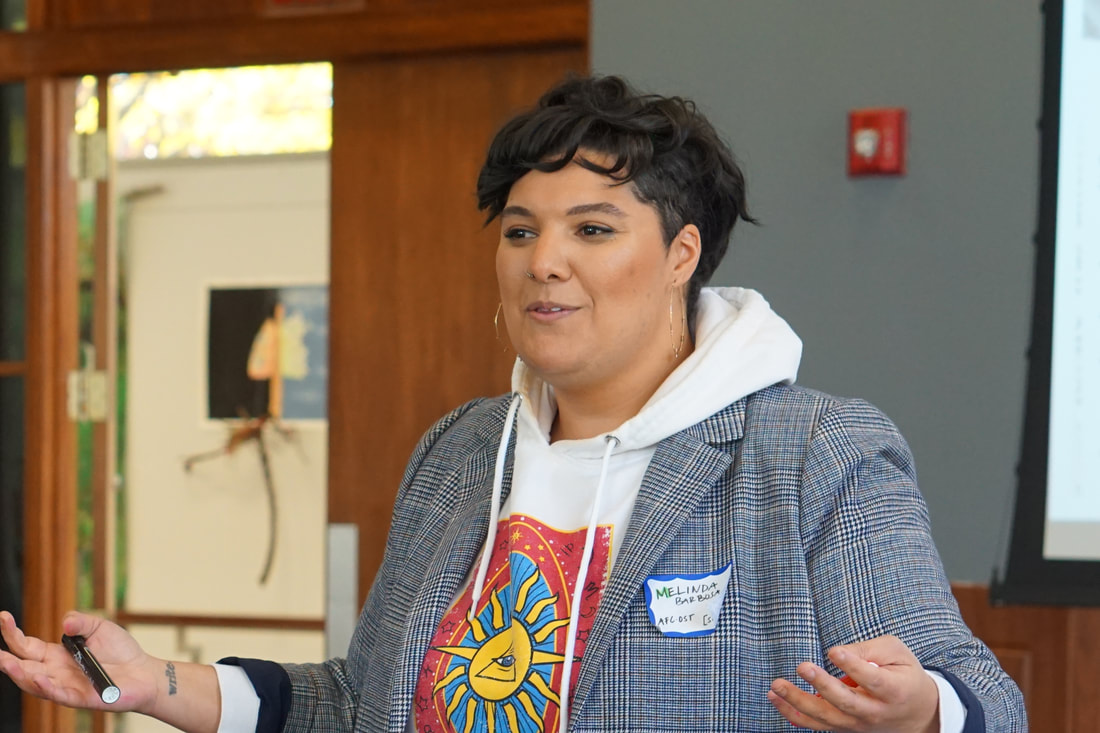|
By Melinda Barbosa, Quality Coach and Trainer, Agenda for Children OST  We know storytelling can have long-term beneficial impacts in our work by creating a sense of belonging and connectedness, allowing us to reflect on our personal identities, and to build communities that create social change. When you have deadlines looming, progress reports to write, and a new curriculum unit to put together, it can feel like there’s not enough time to just talk. Storytelling is more than talking. It’s a practice in deep listening and noticing within ourselves to uncover what is actually important, and asking us to tend to the emerging needs of the group. Keep reading for some tips on how to bring storytelling to your team:
Bo Lembo and I will be teaming together this spring to bring you an AFCOST storytelling workshop (from our Symposium sessions on journaling and storytelling for social change) where you can learn more about how to use storytelling with all members of your community to connect and create a shared sense of purpose. Also, if you want to see how you can use storytelling with young people, you can check out this 2018 Blog I wrote.
0 Comments
Leave a Reply. |
Archives
March 2024
Categories
All
|
|
Looking for something?
|
|
